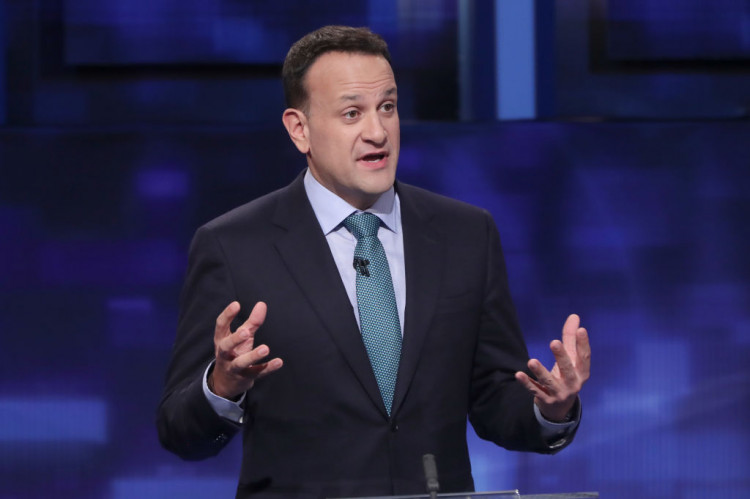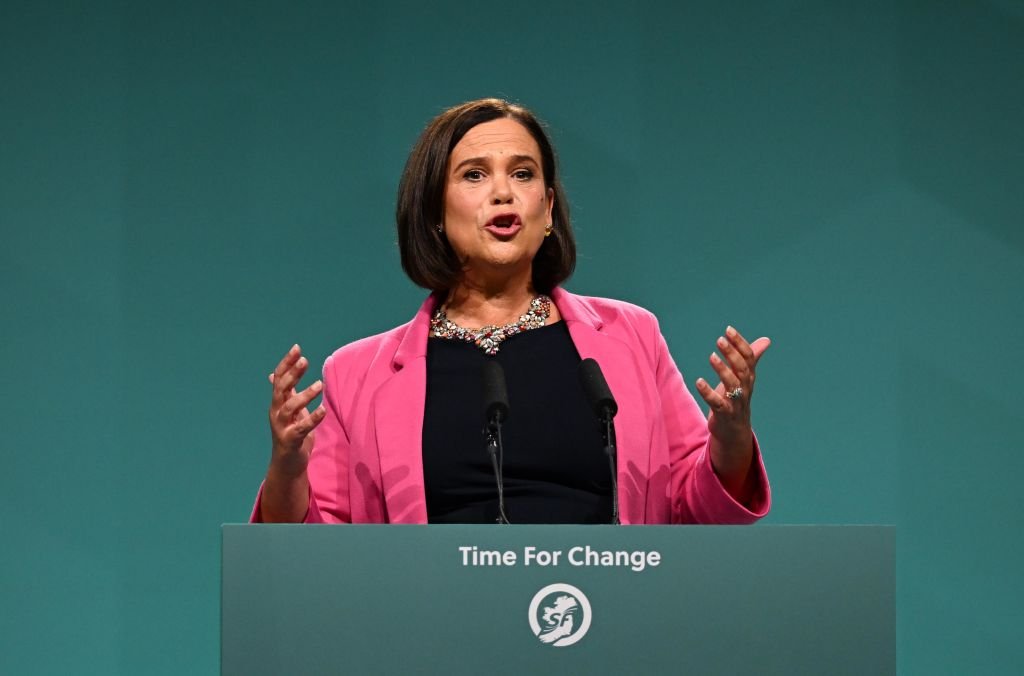Four years ago on this very day, the Irish people headed to the polls and elected an historic coalition of Fianna Fáil, Fine Gael and the Green Party. The coalition has come far, further than some may have thought.
The Taoiseach’s Key Considerations
Polls have recorded support for the three-party coalition to be hovering around 40%. Sinn Féin is clearly the most popular party in Ireland and although its support has dipped from a high of 36% to 25% in the most recent Business Post Red C survey, it will be the biggest winner in June’s local and European elections. But is it the next general election that is the ultimate prize in Irish politics?
The Sinn Féin pitch for the next general election was crystal clear to anyone who recently heard Mary Lou McDonald’s keynote address to the Wind Energy Ireland Conference in Dublin. In her speech, she referenced change close to a dozen times.
We’re now firmly heading into the home straight of the coalition’s tenure. And the question we’re all asking is, when will the Taoiseach head to the Áras to request a dissolution of the Dáil? Below I have evaluated the three most likely dates for the general election and the considerations on the mind of the Taoiseach.
June 2024 – 20% likelihood
The earliest date for a general election is likely to be June 2024, to occur alongside the local and European elections. Fine Gael is already well advanced in selecting its council candidates while Sinn Féin and others are somewhat behind. A snap poll in June would be the ultimate element of surprise by Varadkar. Consider it more of a political bombshell move. It would also serve to eliminate the politically durable label of a lame duck Government following Sinn Féin’s expected buoyant performance at local and European level.
There is no getting away from the growing sense of fatigue within Fine Gael’s ranks. The party has been in power for 13 years and some have raised questions as to whether the hunger for power is still there including within the leadership. While that feeling won’t be helped by several big-name Fine Gael departures ahead of the next election, Varadkar’s leadership in standing against Israeli action in Gaza is a reminder that he himself should never be underestimated. I suspect the fire does still burn in Varadkar, and he will do all in his power to stem the prospects of a Sinn Féin Taoiseach. What better way than to turn the political system on its head with a snap election? After all, it would be a trademark move from the straight-talking leader we all came to know many years ago.
Constitutionally, it is the prerogative of the Taoiseach to make a request to the President to dissolve the Dáil. The norm of coalition Government has meant that prerogative is somewhat of a shared collective decision by the main party leaders in Merrion Street. An early election will be fiercely resisted by Fianna Fáil and the Green Party. The latter needs to draw out every additional day in office to progress its busy policy agenda. The greatest consideration against a June poll is that it would cause an eruption in relations between the coalition partners. Fine Gael and Fianna Fáil will be fighting for the final seats in most constituencies and intra-party transfers, whether agreed via a formal pact or informally, will be critical for them to return a seat count to rival a dominant Sinn Féin. What’s the point of cutting off one's nose to spite one's face?
November 2024 – 70% likelihood
The smart money suggests the coalition will seek to reap the benefit of another bonanza budget in the Autumn. Fianna Fáil and Michael McGrath will want to demonstrate to the electorate the rewards reaped from prudent economic and fiscal management. A poll later this year will also give the coalition more time to point to an improvement in house building numbers with the Government expected to shortly raise its own targets. Similarly, the cost-of-living hangover from last year is likely to ease as the year goes on with a price war in the energy market already underway. Though ongoing geopolitical pressures in Ukraine and the Middle East may spoil that party.
The Greens too will have one final chance in Budget 2025 to secure many of their policy priorities. With the “green agenda” now a platform adopted by the main political parties, to one extent or another, Eamon Ryan needs specific wins for his party’s electoral base.
Above all, a November election, while not the first preference of the Green Party, would be agreeable by the coalition leaders. A slight complication emerges in terms of passing the Finance Bill, to give full effect to the Budgetary measures.
The main downside of a November poll from the coalition’s view is to the extent to which Sinn Féin can portray the coalition as unwanted and limping towards the finish line. They will be buoyed from large gains at local level and potentially tripling their representation in the European Parliament. Unfortunately for Mary Lou McDonald, the long summer recess will take some of the venom out of that bite.
February-March 2025 – 10% likelihood
Talk to any seasoned canvasser and they won’t be shy in revealing their despair of a cold winter election. The last thing voters want to see during a cold, dark and depressing January is politicians at the door. But the weather hasn’t stopped the last three general elections being held in February. So, what’s different now? In a nutshell it’s the “what if” syndrome.
Both Enda Kenny and Leo Varadkar flirted with the ideas of an October / November election in the final year of their respective terms in office. Both arguably made mistakes by holding out to the very end.
Another point to consider is that the coalition will likely lose at least one TD in this June’s European elections which will further make it vulnerable to a motion of no confidence being called. The Government will need to move the writ for any by election within six months and it may not fancy its chances, even in the Fianna Fáil heartland of Offaly where current TD Barry Cowen is tipped to head to Brussels. Therefore, the coalition’s ability to make it to 2025 is more unlikely.
The full effect of any tax changes in Budget 2025 will be felt in the pockets of voters at the end of January. There is a view that this would boost the coalition’s fortunes. But this perspective misses a basic reality of modern politics. Giveaway budgets simply do not carry with them the same electoral benefit as in the Celtic Tiger era. The expectations on Government every year have simply become immense, even if it is conflict at times with the resilience of the economy. If there was a new Olympic sport for politicians, it would surely have to be kite flying and never has this been more apparent than in the run up to the Budget. Let’s recall there was a core budget package of €5.2 billion announced last October. The effect? It didn’t make a dent in support for the coalition.
In conclusion, it’s probably safe to assume that we’ll be shortly using #GE24.







